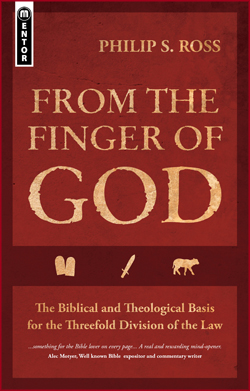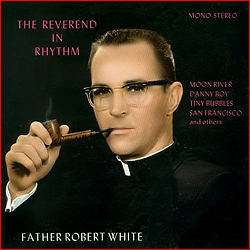by Phil Johnson


he gospel's most dangerous earthly adversaries are not raving atheists who stand outside the door shouting threats and insults. They are church leaders who cultivate a gentle, friendly, pious demeanor but hack away at the foundations of faith under the guise of keeping in step with a changing world.
No Christian should naively imagine that heresy is always conspicuous or that every purveyor of theological mischief will lay out his agenda in plain and honest terms. The enemy prefers to sow tares secretly for obvious reasons. Thus Scripture expressly warns us to be on guard against false teachers who creep into the church unnoticed (Jude 4); wolves who sneak into the flock wearing sheep's clothing (Matthew 7:15); and servants of Satan who disguise themselves as angels of light (2 Corinthians 11:13-15).

Theological liberalism is particularly dependent on the stealth offensive. A spiritually healthy church is simply not susceptible to the arrogant skepticism that underlies a liberal's rejection of biblical authority. A church that is sound in the faith won't abandon the gospel in order to embrace humanist values. Liber alism must therefore take root covertly and gain strength and influence gradually. The success or failure of the whole liberal agenda hinges on a patient public-relations campaign.
That is precisely how neo-liberals have managed to get a foothold in the contemporary evangelical movement. Consider how evangelicalism has changed in just a few short decades.
Classic Evangelicalism
Historic evangelicalism has two clear distinctives. One is a commitment to the inspiration and authority of Scripture. The other is a conviction that the gospel message is clear and non-negotiable.
Specifically, evangelicals understand the gospel as an announcement of what Christ has done to save sinners, redeem Adam's fallen race, and usher believers into His eternal kingdom. The gospel is not a mandate for sinners to save themselves, redeem humanity, recover human dignity, safeguard cultural diversity, preserve the environment, eliminate poverty, establish a kingdom for themselves, or champion whatever social concept of "salvation" might be popular at the moment. In fact, the gospel expressly teaches that sinners can be justified only through faith in Christ alone, and exclusively by
His gracious work—not because of any merit they earn for themselves.
The Protestant Reformation clarified and illuminated those same two principles—
sola Scriptura and
sola fide. Indeed, they are sometimes known as the formal and material principles of the Reformation. But they weren't novel ideas someone dreamed up out of thin air in the sixteenth century. They are and always have been essential principles of biblical Christianity. In the long course of church history, those truths have frequently been clouded and confused, or mingled with (and sometimes overwhelmed by) bad teaching. Yet since the time of Christ and the apostles those truths have never been totally silenced. They are in fact the very backbone of New Testament doctrine.
Historic evangelicalism made much of that fact. From the dawn of the Reformation through the mid-20th century, no honest, authentic evangelical would ever have thought of questioning Scripture or modifying the gospel.
Contemporary Evangelicalism
With the advent of the seeker-sensitive movement, however, evangelicals began to be influenced by a new species of entrepreneurial leaders who marginalized those core doctrines by neglect. Most of them didn't overtly
deny any essential biblical truths; but neither did they vigorously stress or defend anything other than their own methodology.

The results were predictable: Churches are now filled with formerly unchurched people who are still untaught and perhaps even unconverted. Multitudes of children raised on a treacly diet of seeker-sensitive religion grew up to associate the label
evangelical with superficiality. Most of them couldn't tell you what the term originally meant, and they reject whatever vestigial evangelical boundaries or doctrinal distinctives their parents may have held onto. But they figure they are still entitled to call themselves evangelicals when it's convenient, and many have remained at the fringes of the visible movement, decrying how out of step the church is with their generation. That, after all, is exactly what they learned from their parents.
This is fertile soil for liberalism to burst into full flower, and that is precisely what is already happening. Evangelicals are blithely following a number of trends that advance the neo-liberal agenda. Unless a faithful remnant begins to recognize and resist the neo-liberal strategy, evangelical churches and institutions will eventually succumb to rank liberalism, just as most of the mainstream denominations did a century ago.
Four Liberal Trends Evangelicals Must Resist
To help you withstand the drift, here are four major trends today's crop of neo-liberal leaders are fostering and taking advantage of:
1. They recklessly follow the zeitgeist.
Theological liberals have always been diligent students of the spirit of the age. A century ago, they were known as "modernists" because post-enlightenment values were the pretext they used to advance the liberal agenda. They insisted that if the church refused to change with the times, Christianity itself would become irrelevant.
Naturally, "changing with the times" meant abridging the gospel message. Sophisticated modern minds would not accept the miracles and other supernatural elements of Scripture. That was OK, the modernists insisted, because the real heart of the Bible's message is the moral and ethical content anyway. Besides, they said, practical virtue is what the church
ought to focus on. They considered it sheer folly for preachers to stress difficult doctrinal features that sounded primitive and offensive to modern ears—such as the wrath of God, blood atonement, and especially the doctrine of eternal punishment. Future generations would be lost to churches that held onto such beliefs and refused to accommodate modern thought, they solemnly warned. The situation was urgent.
(Of course they were dead wrong. Churches and denominations that embraced modernist ideas declined severely, and some died. Churches that stayed faithful to their evangelical convictions thrived.)
Postmodernism is the pretext neo-liberals nowadays use to argue that everything must change in the church. The world has changed its point of view once more, and the liberals are still complaining that the church is lagging behind, out of step, and increasingly irrelevant. Notice, however: although the neo-liberals' pretext departs from the modernism favored by their 19th-century counterparts, both the line of argument they use and their theological agenda remain exactly the same. The doctrines postmodern liberals relentlessly challenge are the same ones the modernists rejected: especially God's hatred of sin; penal-substitutionary atonement, and the doctrine of hell.
It's no secret that the world has always despised certain aspects of biblical truth. If it were a legitimate goal for the church to keep in step with the world, it might make sense to review and revise the message from time to time. But the church is forbidden to court the spirit of the age, and one of the main reasons the gospel is such a stumbling block is that it cannot be adapted to suit cultural preferences or alternative worldviews. Instead, it confronts them all.

Beware of church leaders who are more worried about being contemporary than they are about being doctrinally sound; more concerned with their methodology than they are with their message; more captivated by political correctness than they are by the truth. The church is not called to ape the world or make Christianity seem cool and likable, but to proclaim the gospel faithfully—including the parts the world usually scoffs at: sin, righteousness, and judgment (cf. John 16:8). Jesus expressly taught that if we are faithful in that task, the Holy Spirit will convict hearts and draw believers to Christ.
But speaking of wanting to be hip and fashionable, that's another major trend currently advancing the neo-liberal agenda:
2. They want the world's admiration at all costs.
There is of course nothing wrong with being winsome. As recipients of divine grace, if our lives properly manifest the Spirit's fruit, we should by definition have personal charisma (cf. Galatians 5:19-23). We also ought to maintain a good testimony before the world. In fact, to qualify as an elder, a man "must be well thought of by outsiders, so that he may not fall into disgrace" (1 Timothy 3:7).
That of course speaks of a person's
character—graciousness, compassion, and a reputation for integrity. It is not a prescription for the appeasement of worldly tastes or the endorsement of every earthly fashion. When we need to shave corners off the truth or compromise righteousness in order to gain the world's friendship, bearing the reproach of Christ is an infinitely better option. No true friend of God deliberately seeks the world's camaraderie (James 4:4).
But one of the common characteristics of liberalism is an obsession with gaining the world's approval and admiration
no matter the cost.
We witnessed the germination of this attitude in the evangelical movement at least four decades ago, especially among contemporary church leaders who let neighborhood surveys and opinion polls determine the style and agenda of the church.
When a church gives in to that craving for worldly approval, they will inevitably subjugate the gospel to a more popular message. At first, they won't necessarily deny (or even challenge) core gospel truths such as the historical facts outlined in 1 Corinthians 15:3-4. But they will abbreviate, modify, or add to the message. The embellishments usually echo whatever happens to be politically correct at the moment—climate change, world hunger, the AIDS crisis, or whatever. Those things will be stressed and talked about repeatedly while the historic facts of Christ's death and resurrection, the great themes of gospel doctrine, and the actual text of Scripture itself will be largely ignored or treated as something to be taken for granted.
Feed any church a steady diet of that for a few years and they will have no means of defense when someone attacks the faith more directly. That's precisely what is happening today with various attacks on substitutionary atonement, the exclusivity of Christ, the authority and inerrancy of Scripture, and other essential Christian truths. All of those things were first downplayed in order to make the church's message sound more "positive." Now they are being subjected to a full-scale assault.
Such problems are exacerbated and the liberal craving for worldly esteem reaches a white-hot intensity in the academic realm. That brings up yet another feature of the neo-liberal agenda to watch out for:
3. Their "faith" comes with an air of intellectual superiority.
Liberals treat faith itself as an academic matter. Their whole system is essentially a wholesale rejection of simple, childlike belief. Their worldview foments an air of academic arrogance, setting human reason in the place of highest authority; treating the Bible with haughty condescension; and showing utter contempt for the kind of faith Christ blessed.
Consequently, liberals are and always have been obsessed with academic respectability. They want the world's esteem as scholars and intellectuals—no matter what they have to compromise to get it. They sometimes defend that motive by arguing that the secular academy's acceptance is essential to the Christian testimony.
Of course that is a quixotic quest. It is also a denial of the Bible's plain teaching. Believers cannot be faithful to Scripture
and win general accolades from the wise men, scribes, and debaters of this age. The world hated Jesus, and He made it clear that His faithful disciples mustn't expect—or seek—the world's honor (John 15:18; Luke 6:22; cf. James 4:4). Paul, himself a true scholar in every sense, wrote this world's wisdom off as sheer foolishness: "Let no one deceive himself. If anyone among you thinks that he is wise in this age, let him become a fool that he may become wise. For the wisdom of this world is folly with God" (1 Corinthians 3:18-19).
True Christian scholarship is about
integrity, not accolades. Liberalism covets the latter, and that explains why liberals are always drawn to ideas that are stylish and politically correct, yet they are resistant to virtually the all the hard truths of Christianity—starting with the authority Scripture claims for itself.
Be on guard against that tendency. Here's one more:
4. They despise doctrinal and biblical precision.
This may sound like an oxymoron, but while treating faith as an academic matter, liberals prefer an almost anti-intellectual, agnostic approach to dealing with the specific truth-claims of Scripture. They like their doctrine hazy and indistinct.

One maneuver neo-liberals have perfected in these postmodern times is an artful dodge when they dislike a particular doctrine but cannot afford to make a plain and open denial. Instead, they will claim that Scripture is simply too unclear on that point. We can't really be sure. The point is disputed by top scholars, and who are we to speak with too much certainty? Let's have a five-year moratorium on strong opinions.
Thus without denying (or affirming) anything in particular, and without even technically dismissing the matter under discussion as an unimportant point, the ruse effectively sets the truth aside. The skeptic's goal is thus accomplished without incurring any of the odium of skepticism.
Heavy doses of that flavor of postmodern, neo-liberal evasion have conditioned multitudes of church members to regard carefulness and precision in handling doctrine as both unimportant and potentially divisive. These days the person who shows evidence of doctrinal scruples is much more likely to be held in suspicion or disdain among evangelicals than the neo-liberals who have deliberately made the study of biblical doctrine seem so cloudy, confusing, and contentious.
In reality—and this is a lesson the church should have learned from both Scripture and church history—unity and harmony cannot exist in the church at all if there is not a common commitment to sound doctrine.
As long as these four trends and others like them continue to thrive within the evangelical movement, the threat posed by neo-liberalism looms large. Conservative evangelicals should not grow apathetic or take too much comfort in the apparent meltdown of Emergent Village and the liberal wing of postmodernized Christianity. Even if the Emergent ghetto does finally and completely give up the ghost, many of the leading figures and popular ideas from that movement will simply blend into mainstream evangelicalism (which is growing less mainstream and less evangelical all the time).
We must pay attention to the lessons of history and stand firm on the truth of Scripture—and we desperately need to be more aggressive than we have been so far in opposing these neo-liberal influences.


 rarely post book reviews here. (Challies does them so well, why should I?) But from time to time I get the urge to feature a book I totally love—or more rarely, to critique a book I really hate.
rarely post book reviews here. (Challies does them so well, why should I?) But from time to time I get the urge to feature a book I totally love—or more rarely, to critique a book I really hate. The book is From the Finger of God: The Biblical and Theological Basis for the Threefold Division of the Law, by Philip S. Ross, published last year by the Mentor imprint of Christian Publications.
The book is From the Finger of God: The Biblical and Theological Basis for the Threefold Division of the Law, by Philip S. Ross, published last year by the Mentor imprint of Christian Publications.











 Salad Days
Salad Days
 First, what seems really hip today might just make you look like
First, what seems really hip today might just make you look like  > why would you question a brother
> why would you question a brother


 he wrath of God and the judgment of the day of the Lord cannot be a trifling matter. How emphatically are we told in Scripture, that it is "a fearful thing to fall into the hands of the living God." Upon such a subject we cannot afford to trifle.
he wrath of God and the judgment of the day of the Lord cannot be a trifling matter. How emphatically are we told in Scripture, that it is "a fearful thing to fall into the hands of the living God." Upon such a subject we cannot afford to trifle.




 eter wrote those words to Christians living in exile (1 Peter 1:1) and suffering under the cruelest kind of Satanically-inspired persecution (1 Peter 5:8-9). Their lives were constantly in danger because of their faith; most had already lost all their earthly posessions. Their suffering was multilayered and relentless.
eter wrote those words to Christians living in exile (1 Peter 1:1) and suffering under the cruelest kind of Satanically-inspired persecution (1 Peter 5:8-9). Their lives were constantly in danger because of their faith; most had already lost all their earthly posessions. Their suffering was multilayered and relentless.
 t is no use to try to get more zeal except in the right way, knowing more of Christ; and if we seek to grow in zeal as certain people we might mention have done, we shall have a zeal like a house on fire! It will do more mischief than it will do good. There may be some heat, and a deal of illumination; but it will die away, by-and-by, into black ashes, poisoning the churches everywhere.
t is no use to try to get more zeal except in the right way, knowing more of Christ; and if we seek to grow in zeal as certain people we might mention have done, we shall have a zeal like a house on fire! It will do more mischief than it will do good. There may be some heat, and a deal of illumination; but it will die away, by-and-by, into black ashes, poisoning the churches everywhere.


 Here's what I think: Jesus tells this story to straighten out the question of what Marriage is and ought to be because there is something authoritative in the origin of man (male and female) that speaks to who he ought to be. But the reason for that is not an ontological argument. It's not a deduction from fit, form and function to foundational principle. It's not something that science discovers for us. It is certainly not something science discovered for Jesus. Jesus appeals to the declaration of Scripture to define the origin of things -- in this case, Man.
Here's what I think: Jesus tells this story to straighten out the question of what Marriage is and ought to be because there is something authoritative in the origin of man (male and female) that speaks to who he ought to be. But the reason for that is not an ontological argument. It's not a deduction from fit, form and function to foundational principle. It's not something that science discovers for us. It is certainly not something science discovered for Jesus. Jesus appeals to the declaration of Scripture to define the origin of things -- in this case, Man. But Jesus is the one who spoke these things into existence. Your words, compared to His words, are not even hot air. They are, like all human words including my own post here, like the flatulence from the wet tail of a ballon as it discharges and flies away: it may be good for a childish laugh, but it doesn't have eternal significance.
But Jesus is the one who spoke these things into existence. Your words, compared to His words, are not even hot air. They are, like all human words including my own post here, like the flatulence from the wet tail of a ballon as it discharges and flies away: it may be good for a childish laugh, but it doesn't have eternal significance.



 he gospel's most dangerous earthly adversaries are not raving atheists who stand outside the door shouting threats and insults. They are church leaders who cultivate a gentle, friendly, pious demeanor but hack away at the foundations of faith under the guise of keeping in step with a changing world.
he gospel's most dangerous earthly adversaries are not raving atheists who stand outside the door shouting threats and insults. They are church leaders who cultivate a gentle, friendly, pious demeanor but hack away at the foundations of faith under the guise of keeping in step with a changing world. Theological liberalism is particularly dependent on the stealth offensive. A spiritually healthy church is simply not susceptible to the arrogant skepticism that underlies a liberal's rejection of biblical authority. A church that is sound in the faith won't abandon the gospel in order to embrace humanist values. Liber alism must therefore take root covertly and gain strength and influence gradually. The success or failure of the whole liberal agenda hinges on a patient public-relations campaign.
Theological liberalism is particularly dependent on the stealth offensive. A spiritually healthy church is simply not susceptible to the arrogant skepticism that underlies a liberal's rejection of biblical authority. A church that is sound in the faith won't abandon the gospel in order to embrace humanist values. Liber alism must therefore take root covertly and gain strength and influence gradually. The success or failure of the whole liberal agenda hinges on a patient public-relations campaign. The results were predictable: Churches are now filled with formerly unchurched people who are still untaught and perhaps even unconverted. Multitudes of children raised on a treacly diet of seeker-sensitive religion grew up to associate the label evangelical with superficiality. Most of them couldn't tell you what the term originally meant, and they reject whatever vestigial evangelical boundaries or doctrinal distinctives their parents may have held onto. But they figure they are still entitled to call themselves evangelicals when it's convenient, and many have remained at the fringes of the visible movement, decrying how out of step the church is with their generation. That, after all, is exactly what they learned from their parents.
The results were predictable: Churches are now filled with formerly unchurched people who are still untaught and perhaps even unconverted. Multitudes of children raised on a treacly diet of seeker-sensitive religion grew up to associate the label evangelical with superficiality. Most of them couldn't tell you what the term originally meant, and they reject whatever vestigial evangelical boundaries or doctrinal distinctives their parents may have held onto. But they figure they are still entitled to call themselves evangelicals when it's convenient, and many have remained at the fringes of the visible movement, decrying how out of step the church is with their generation. That, after all, is exactly what they learned from their parents. Beware of church leaders who are more worried about being contemporary than they are about being doctrinally sound; more concerned with their methodology than they are with their message; more captivated by political correctness than they are by the truth. The church is not called to ape the world or make Christianity seem cool and likable, but to proclaim the gospel faithfully—including the parts the world usually scoffs at: sin, righteousness, and judgment (cf. John 16:8). Jesus expressly taught that if we are faithful in that task, the Holy Spirit will convict hearts and draw believers to Christ.
Beware of church leaders who are more worried about being contemporary than they are about being doctrinally sound; more concerned with their methodology than they are with their message; more captivated by political correctness than they are by the truth. The church is not called to ape the world or make Christianity seem cool and likable, but to proclaim the gospel faithfully—including the parts the world usually scoffs at: sin, righteousness, and judgment (cf. John 16:8). Jesus expressly taught that if we are faithful in that task, the Holy Spirit will convict hearts and draw believers to Christ.









